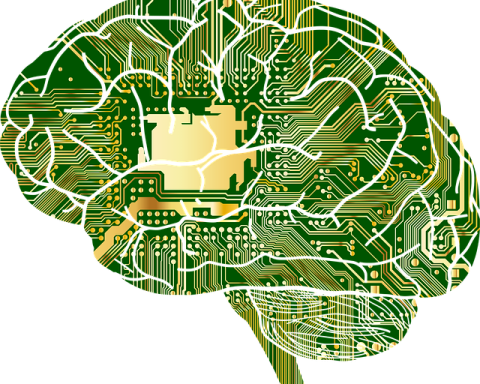By Rotem Shor, Medisafe Chief Technology Officer
Technology and health have experienced a convergence in the last few years, leading to a new state of digital health that is transforming how we live and work. But there is a greater science behind it that analyzes tremendous amounts of data to shape and personalize our health experiences. But how did we get here, and what does this new science mean for the future. A creator of one of the leading digital health platforms examines the role of behavioral science and how the tech takeover could configure our world in new ways.
Digital health is the latest boom to hit both the tech and healthcare industries, with promises to increase intervention reach and improve effectiveness for a range of health outcomes. With the growing field of digital health applications and the inclusion of AI in healthcare, behavioral scientists have a unique opportunity to apply their skillset to all phases of a digital health intervention, from design to implementation. But to understand where the industry is headed, it’s important to understand how we got here and its applications to influence patient health.
What are Behavioral Science and its Uses?
Behavioral science is the study of human actions, specifically in sociology, social, cultural, and biological terms. It’s a scientific approach to evaluate human behavior in social settings and measure a person’s individual choices – both when presented with a stimulus like another person or when decisions need to be made by an individual. In more common terms, behavior science measures human actions, and scientists often seek to generalize human behavior related to society.
What we can learn from people’s decisions and actions enable organizations to draw conclusions and make predictions. Evaluating the trends and patterns in the behavior, found data can be used to replicate future behavior. These different data sets include an individual’s interests and opinions influenced by demographics, perceptions, and social elements. All these components contribute to decision-making that has enabled advanced thinking to create new healthcare tools.
How Behavioral Science Set the Stage for AI
With computer systems’ advancement, consumer behaviors and data output moved to software systems to easily track and evaluate. This includes real-time, real-world, patient data sourced directly from consumption behaviors. Organizations realized that consumer behavior isn’t explicit to shopping and can also provide predictions on patients’ healthcare choices and actions. Using patient profiles and their behaviors sourced from aggregated patient populations, healthcare systems now have a wealth of information on how patients are likely to interact. Aligning those data outputs to machine learning saw the birth of AI in healthcare.
Whether or not we care to admit it, we build relationships with apps. And apps, like people, can elicit both positive and negative behaviors from us. These applications learn our patterns, empathize with our motivations, and carefully weigh their responses. They decide to ignore, challenge or encourage us depending on how they anticipate we will react.
Digital Inclusion of Behavioral Science
Digital health is the convergence of digital technologies with health, healthcare, living, and behavioral science to enhance healthcare delivery efficiency and make medicine more personalized and precise. With advancements in technology, applications, and interconnected software solutions, digital health now includes telemedicine, mobile applications, wearable devices, and remote monitoring sensors. It’s essentially a more connected network to foster greater engagement among providers, patients, and healthcare actions.
Today’s myriad of digital health tools is designed to interact with users, capture data sets based on interactions, and generate personalized intervention strategies toward improved outcomes. In many elements, a cloud-based platform can personalize a stream of content and information based on users’ technology activity, allowing users to experience only the most relevant content. Through the various algorithms developed from data output, AI now uses these data patterns and interactions to craft specific content and experiences to support patient engagement.
While the same behavioral science principles apply to digital health, it’s important to note that additional security measures are implemented in digital health platforms due to the sensitivity of personal health information and increased risk. Unlike a simple online purchase at Amazon® or Macy’ s®, digital health platforms implement multiple layers of security and data privacy protections to ensure that patients’ connections with providers are private and one-on-one through a secure channel.
Digital Patient Journeys
With more patients embracing digital health, the patient journey has become digital.
Platforms use AI engines to help patients manage any potential hurdles or issues throughout diagnosis, treatment, and aftercare. These digital platforms use AI to encourage financial assistance program enrollment and engage triggered support functions, driven by personalized factors. By combining advanced behavioral science and machine learning, digital companions can now incorporate patient, brand, and medication variables to create intervention activities and create engagement through a series of push notifications. These components are driven by patient interaction and customized by the thousands of decisions each patient makes every day.
What’s Next for Digital Applications of Behavioral Science?
As we look to the future of digital health and is its use of behavioral science, it appears the view is wide-open. More healthcare systems and health IT platforms incorporate AI into their operations to help advance decision making and increase projected outcomes through personalized approaches. Through increases in machine learning and advanced AI technologies, we see a new type of care that focuses on providing individualized support.
There are now numerous health platforms that help integrating clinicians with AI and enable personalized engagement journeys for patients through surgeries, online medical exams, and even medication management. These companies are constantly updating technology so it can support users appropriately and track their progress. With machine learning as the backbone, each person’s progress helps AI improve the platform and make it smarter and more scalable.
As a result of the pandemic, the need for social distancing, and remote working, moving toward an AI-based health care system has never been more prevalent. The advanced use of digital technology and machine learning means more aspects of the health ecosystem become more accessible and convenient to a greater population. And its impact is being recognized to help facilitate medical record review, population health trending and analytics, therapeutic drug and device design, reading radiology images, making clinical diagnoses and treatment plans, and even talking with patients.
I expect that the future of healthcare will become more personal, more patient-driven, and will use AI tools to understand better the personal factors that drive patient care. We know that providers are already adopting AI faster to help reduce risks and deliver measurable improvements in outcomes. Patients are adopting platforms to improve their experience and enhance their lives. What remains to be seen is how these elements can come together for a future that is integrated, compassionate, and personal to each person’s journey toward a healthier tomorrow.
About the Author
Rotem Shor is the Chief Technology Officer of Medisafe, the leading digital companion platform that provides personalized treatment support to more than 7MM users. He is an expert in digital medicine applications and works closely with major pharma companies in developing and guiding direct connection to patients via innovative platforms to support improved health and treatment, with customized and guided treatment.








